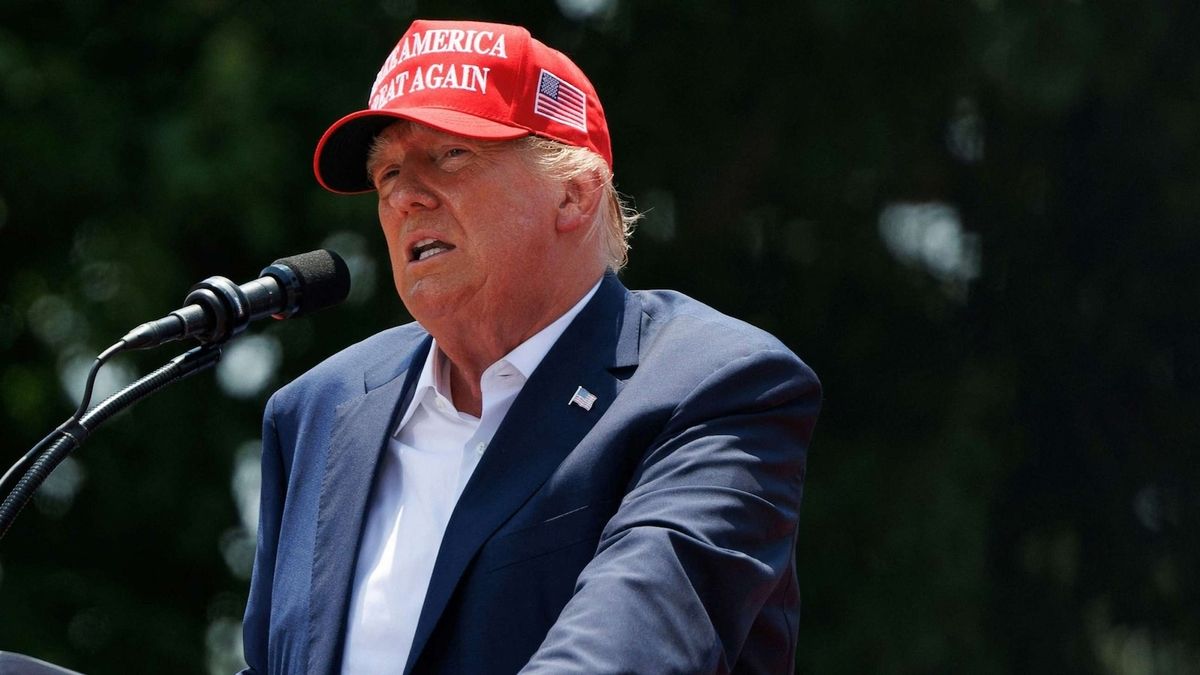QAnon’s Grip on America: Trump’s Strategic Maneuvers and the Far-Right

In an era where the political landscape is as volatile as ever, a recent survey has unveiled that a staggering 41 million Americans subscribe to the beliefs of the QAnon conspiracy theory. This theory, which paints a disturbing picture of Hollywood elites and top Democrats as part of a satanic, cannibalistic cabal, has found a particularly strong foothold among white Republicans who lean heavily on right-wing media. Amidst this unsettling backdrop, former President Donald Trump has been tactically employing pre-planned call-ins as a key strategy to maintain and deepen his connection with the far-right base, including QAnon adherents and supporters of the defendants from the January 6 Capitol riot.
The Magnet of Conspiracy: QAnon’s American Reach
The revelation that a significant portion of the U.S. population, approximately 41 million people, aligns with the QAnon conspiracy theory underscores a profound and troubling polarization within American society. This theory, which has been widely discredited and denounced for its baseless and dangerous allegations, nonetheless continues to captivate a vast audience. The allure of QAnon is particularly potent among white Republicans who place their trust in right-wing media outlets, illustrating the powerful role that media and political ideology play in shaping public beliefs and perceptions.
Trump’s Strategic Call-Ins: Connecting with the Far-Right
Former President Donald Trump, amidst ongoing legal challenges and a strategic shift away from large-scale rallies, has found an efficient and low-cost method to engage with his supporters: pre-planned call-ins to events. These calls, often presented as spontaneous surprises, are in fact carefully orchestrated to reinforce Trump’s presence and influence within far-right circles, including among QAnon believers and those rallying behind the January 6 defendants. Trump’s choice of events to call into, such as Michael Flynn’s ReAwaken America Tour, signals a clear intent to solidify his standing with fringe political groups and loyalists, leveraging platforms that resonate with claims of a stolen 2020 election and other conspiracy narratives.
A Bid for Power: The Case of Ron Watkins
Amidst the swirling currents of conspiracy and political maneuvering, Ron Watkins, a figure suspected to be a key proponent behind the QAnon theory and a former administrator of the controversial alt-right platform 8chan, made a bid for political office. Running in the Republican primary in Arizona, Watkins’s campaign was closely watched as a litmus test for the electoral viability of QAnon-affiliated candidates. However, garnering a mere 4 percent of the vote, Watkins’s defeat underscores the challenges facing individuals directly associated with QAnon in seeking mainstream political acceptance. Despite Watkins’s loss, the incident highlights the ongoing intersections between fringe conspiracy beliefs and American politics.
In summary, the landscape of American politics is witnessing the intertwining of fringe beliefs with mainstream political movements, as evidenced by the significant number of Americans aligning with QAnon conspiracy theories and the strategic maneuvers of figures like former President Donald Trump. Through pre-planned event call-ins, Trump continues to engage with a far-right base, including QAnon believers and January 6 defendants’ supporters, signaling a persistent and troubling undercurrent of conspiracy and polarization within the political discourse. Meanwhile, the electoral journey of individuals like Ron Watkins serves as a reminder of the limits and challenges that overt affiliation with conspiracy theories poses in the political arena. As America grapples with these dynamics, the story of QAnon, Trump, and the far-right is far from over, leaving the nation at a critical crossroads of belief, politics, and the quest for truth.
This article has been archived for your research. The original version from BNN Breaking can be found here.

